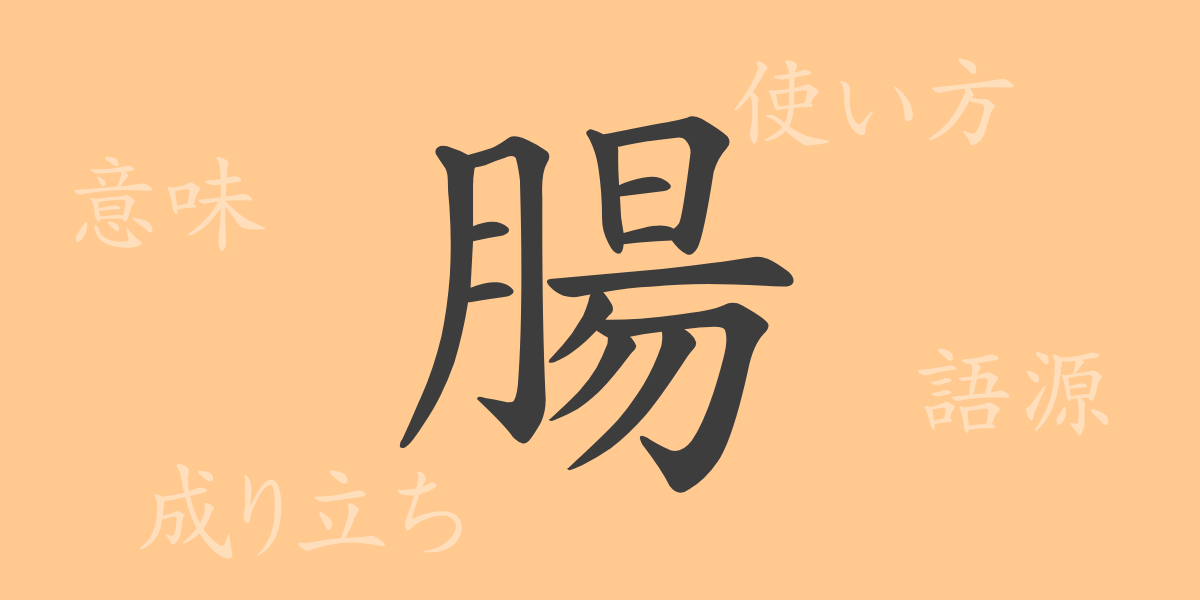The organs that work silently within us play a pivotal role in our daily digestion and absorption, and none is more essential than the intestines. Recently, the influence of gut health on overall physical and mental well-being has gained attention. This article highlights the Kanji ‘腸(チョウ)’, exploring its origins, meanings, and uses, as well as its presence in Japanese idioms and proverbs, demonstrating its broad significance in our lives.
Origins of ‘腸(チョウ)’
The Kanji ‘腸’ originated in ancient China, depicted initially as the combination of the radical for meat ‘肉’ and the character ‘長’, symbolizing long, writhing internal organs like a snake. This character has traditionally been used to describe internal organs, specifically referring to parts of the gastrointestinal tract such as the intestines.
Meaning and Usage of ‘腸(チョウ)’
The Kanji ‘腸’ specifically refers to parts of the gastrointestinal tract in humans and animals, such as the intestines, playing a crucial role in digestion and absorption. Metaphorically, it also represents human emotions or inner feelings, as in the phrase ‘腸が煮えくり返る(なべえくりかえる)’, which describes a state of intense anger.
Readings, Stroke Count, and Radical of ‘腸(チョウ)’
Understanding the readings and structure of the Kanji ‘腸’ can deepen our understanding of its use and significance.
- Readings: On’yomi ‘チョウ’, no Kun’yomi.
- Stroke Count: 13 strokes in total.
- Radical: The radical is ‘肉偏(にくづき)’, related to meat or flesh, reflecting its association with bodily organs.
Phrases and Proverbs Using ‘腸(チョウ)’
There are many idioms and proverbs involving ‘腸’, reflecting its integral role in life and its metaphorical use in expressing deep emotions.
- 腸を煮えくり返らせる(なべえくりかえらせる) – To feel intense anger or indignation.
- 腸が痛む(はらわたがいたむ) – To feel heartache or pity when witnessing someone else’s misfortune or suffering.
- 腸が切れるほど(はらわたがきれるほど) – To feel extremely sad or regretful, to an unbearable extent.
Conclusion on ‘腸(チョウ)’
The Kanji ‘腸’ not only represents a vital organ necessary for sustaining life but also serves as a metaphor to express emotions in Japanese language. By understanding its origins, meanings, and uses, we can appreciate the depth of the Japanese language and the critical role of intestines in maintaining health. Managing our diet and gut health is essential for overall well-being, making the understanding of ‘腸’ relevant in both linguistic and health contexts.

























